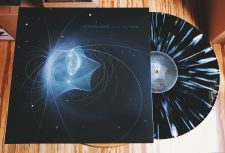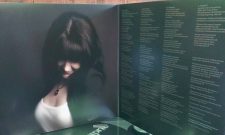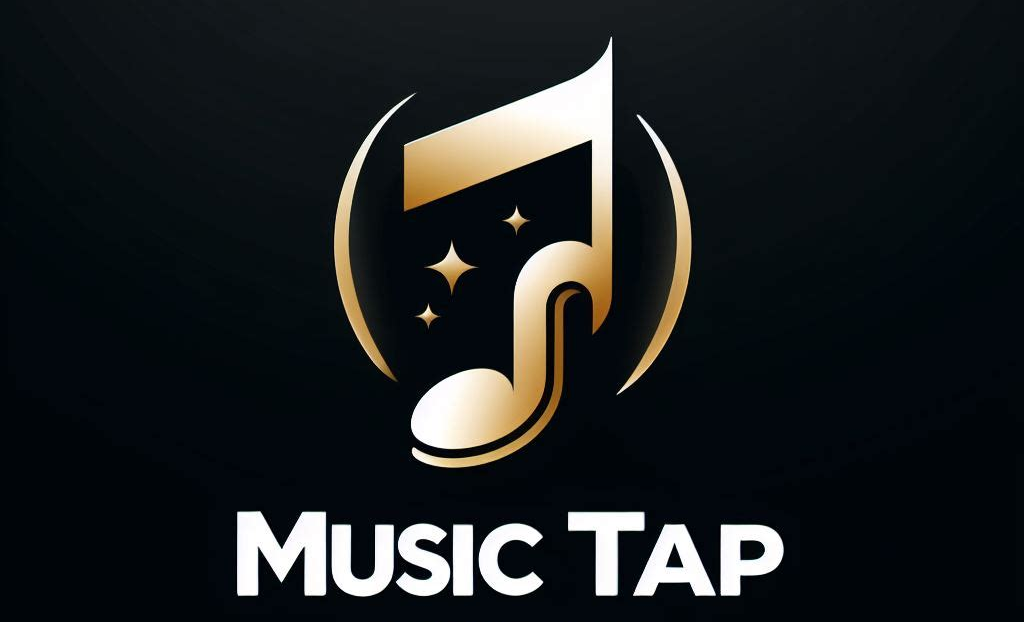There isn’t much to say about Lindsay Murray, also known as Gretchen’s Wheel, that hasn’t already been said: She puts to the lie the idea that great new music isn’t being made. She can make a guitar rip. She has a grasp of what made the pop songs of the ’60s and ’70s so memorable, but never uses that knowledge in vain. Her songs are thoroughly modern and, very often, digs into concepts that don’t frequently get sunlight in the loose genre amalgamation known as power-pop.
Murray put out a brand new Gretchen’s Wheel album this year, Black Box Theory, and released it on most of the formats you know and love. MusicTAP had an opportunity to speak with Murray about her work, the plight of the indie musician in the digital music wild west, and much more.
 What was the time frame between Sad Scientist and the latest, Black Box Theory?
What was the time frame between Sad Scientist and the latest, Black Box Theory?
Sad Scientist was written and recorded over a period of eight months in 2016-2017, and it was released on March 17, 2017. Very soon after its release, I wrote and recorded five new songs very quickly and released those as a digital EP called awry. Awry was released in April, just one month after Sad Scientist, and was intentionally a significant departure from that album. Where Sad Scientist was supposed to be a fairly polished power pop album (at least my version of power pop!), awry was supposed to be somewhat unpolished and genre-ambiguous. And it was released with no advance warning, for no reason other than I wanted to. Then in June 2017, I started writing the material that would become Black Box Theory, although at first I was just writing with no plan for the songs. Once I decided I was up for making another full-length album, I still didn’t start recording anything until late September, because I wanted to focus exclusively on writing and living with the songs for a while first. All the recording, mixing and mastering took place over a six month period, finishing up in February 2018, and the album was released in June, about four months later. So if I’ve done the math correctly, Sad Scientist, awry and Black Box Theory were all created and released within the space of two years.
When you write songs, what’s your creative process like? Gretchen’s Wheel has been around for a relatively short period of time, but has been very productive.
It always starts with a lyrical idea, usually a phrase that pops into my head while I’m doing something else. Sometimes it’s only one word that I feel has potential, even if I don’t know why yet. Everything immediately goes into a notes app on my phone so I don’t forget it… it tends to look like complete nonsense, because I let these random thoughts accumulate in one long, continuous note for a while without trying to structure anything into a song. Once I think there’s enough substance there, I’ll start trying to extract pieces of it that go together and develop them into something resembling a song, arranging things into potential verses, choruses, etc. There are exceptions, like “Tatyana” which came out pretty much all at once. Musically, I usually have an idea of how I want the song to feel, before ever thinking about chords or melody. It’s harder to explain what happens when I get to that step; basically I just pick up a guitar and wait for something to happen! It becomes a tug-of-war between the emerging musical idea and the existing lyrics. If I start to get attached to a chord progression or riff but for whatever reason it doesn’t fit with the lyrics I had, then I’m back to the drawing board with lyrics, because the music is the point. I look at writing lyrics as mostly an unfortunate side effect of being a songwriter – there have to be words to sing! But since I have to have words, I try to make the most of that requirement and let lyric writing be as therapeutic as it can be.
As far as being productive… my output may be a little misleading because I’ve released every song I’ve written. There is no folder of unreleased songs on my hard drive, and my lyric notes file is always tidied up by the time I finish an album. Is writing 44 songs in four years especially productive? I don’t know!
 Gretchen’s Wheel is not so much a band as an alter ego. You are the primary performer on most of your records, and on Black Box Theory, aside from the drums which are handled by Nick Bertling, you do everything. Why “Gretchen’s Wheel” and not “Lindsay Murray”?
Gretchen’s Wheel is not so much a band as an alter ego. You are the primary performer on most of your records, and on Black Box Theory, aside from the drums which are handled by Nick Bertling, you do everything. Why “Gretchen’s Wheel” and not “Lindsay Murray”?
When I was working on my first album, I had a couple reasons for deciding to use a “performance name.” One was that I liked the idea of coming up with a name that had a meaning, just like a band would, even if I didn’t have a band. I felt like using my real name was a little boring and even a bit narcissistic. Another reason was I thought there was a chance it could be a band someday. Now I know I’ll never do that, but I consider anybody that’s worked on my albums an honorary member if they want to be. :)
We’ve discussed in the past how that name came about, but for the readers, where does “Gretchen’s Wheel” come from?
It comes from an early 19th century German art song composed by Schubert called “Gretchen am spinnrade” (“Gretchen at the spinning wheel”) which I encountered back when I was studying classical voice. The text is from Goethe’s Faust. I chose the name because it seemed fitting on a few different levels: the fact that it’s an art song represents a part of my background and influences, the song is similar thematically to most of my own songs (an introspective analysis of some type of longing or sorrow), and because the motion of the spinning wheel is musically represented in the accompaniment, it’s as though the wheel is a musical instrument… and I certainly identify with the act of sitting alone in a room with a musical instrument as a way of dealing with emotional distress!
 What does it take for an indie artist to persevere in the current music business model?
What does it take for an indie artist to persevere in the current music business model?
I’m probably not the best person to answer that question, ha ha! I’ve had quite a few conversations lately with various people who have all sorts of perspectives and attitudes, but none of us have the answer. I’m not very qualified to talk about the current (or former) music business model, since I feel like I’ve always operated outside whatever the music business is. For example, I can’t shake my fist at Spotify and claim that streaming has hurt me personally. I see no evidence that streaming has cannibalized any sales, because my streaming numbers indicate something closer to sampling than “theft.” And I’ll never complain about someone wanting to hear my record before deciding to spend their money on it. But if we’re talking about the kind of artist who’s getting millions of streams, then it’s true that in an earlier era they might’ve been better off because many of those streaming listeners most likely would’ve been album or CD buyers. Anyway, my best answer on how to persevere: don’t go into debt to make a record (or any associated endeavor), and try your best not to have any expectations (easier said than done). I don’t know any secrets to success, but those are a couple ways to avoid some common headaches and heartaches.
Black Box Theory afforded you a couple of new opportunities – it was pressed on vinyl LP, and you had a video made for one of the songs. What were these experiences like for you?
From a business perspective, neither one was terribly smart for an artist in my position. But once you determine to look at something as a recreational expense rather than an investment with an expectation of profit, you can justify all kinds of crazy things. Some people might spend money on a vacation… I made a record. Going into debt was out of the question, so I prepared far enough in advance to prevent that, which made me feel slightly more like a responsible adult!
In my mind, the primary purpose of releasing Black Box Theory was to make it exist on vinyl. (I very much separate the idea of making music from the idea of releasing it, but that’s another story.) There is so much in this business that is out of the artist’s hands, but the act of getting vinyl pressed if you really, really want to is something that is not dependent on anyone else’s permission or interest. There is no gatekeeper to the pressing plants. So it may sound strange, but the whole act of making the decision, planning, saving the money, handling everything that goes into a vinyl release (audio, packaging, timelines, etc.), and ending up with something I could actually see and hold in my hands that simply exists, regardless of anything else that ever happens or doesn’t happen… there is something satisfying in that, and I am happy I did it. (Doesn’t hurt that the splatter vinyl is super gorgeous.)
 I decided to make the video toward the end, while I was waiting for the records to be pressed. I really just wanted to have the experience of making a higher quality video than what I was used to doing myself on an iPhone, and I liked the idea of completely handing it over to other people to see what they would do. I didn’t even have a song preference! I’m so accustomed to DIY-everything, it was a huge relief to not have to come up with a concept, figure out how to make it work, do all the filming and editing…plus I barely had to be on camera at all, which I appreciated! I worked with a local company called VidMonster, and it was a lot of fun to get to be there for the day of shooting and see it all come together. Everyone involved did an excellent job.
I decided to make the video toward the end, while I was waiting for the records to be pressed. I really just wanted to have the experience of making a higher quality video than what I was used to doing myself on an iPhone, and I liked the idea of completely handing it over to other people to see what they would do. I didn’t even have a song preference! I’m so accustomed to DIY-everything, it was a huge relief to not have to come up with a concept, figure out how to make it work, do all the filming and editing…plus I barely had to be on camera at all, which I appreciated! I worked with a local company called VidMonster, and it was a lot of fun to get to be there for the day of shooting and see it all come together. Everyone involved did an excellent job.
Presently, what does success look like for you? What is your goal, specifically for this album, but also for your process for making more music?
Another tough question! For me, success has become progressively harder to define over the past few years. I started out with some pretty naive ideas about what was possible, even though at the time I believed I wasn’t aiming very high… not at fame or even at quitting the day job. But I had vastly underestimated how many people were doing the exact same thing I was doing and therefore underestimated the difficulty in getting heard. I also used to think that there was such a thing as a domino effect: one “win” would create momentum and then they all fall down. And maybe that can be true in some cases, for the right artist at the right time in the right genre, etc. So what do I currently think? Lately I’ve shifted my focus to the things I can control, which includes how I react to things, what I choose to spend my time thinking about, and honestly that’s about it. Any day when I was able to stay positive, deal with stress or disappointment constructively, accept things for what they are without bitterness, and improve my ability to let go was a successful day.
About goals for the album, it would be great if a few more listeners were to find it somehow, and if they happen to be vinyl fans then I’d be very happy to hook them up! As for more music, nothing specific is in progress at the moment. I’ve considered the idea of doing random one-off singles and covers in the future, anything that seems fun and interesting for its own sake.
You can find out more about Gretchen’s Wheel and Lindsay Murray at her website, http://www.gretchenswheel.com
